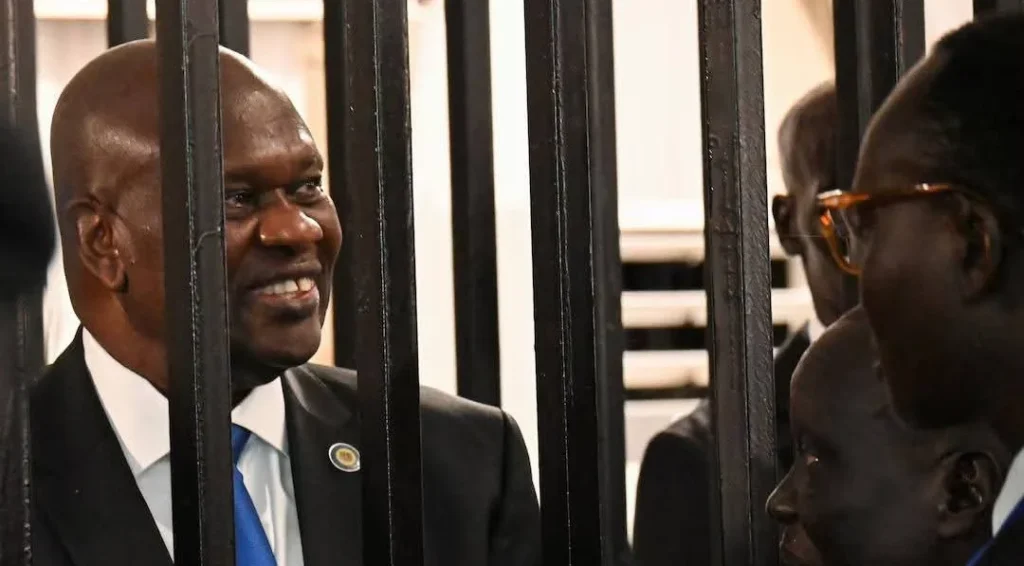On September 23, 2025, South Sudan’s suspended Vice President Riek Machar appeared in a Juba courtroom, confined with seven co-defendants, facing serious charges including treason, terrorism, crimes against humanity, and conspiracy.
This marked his first public appearance since being placed under house arrest in March, following accusations of orchestrating an attack on government forces.
The trial has sparked widespread concern about its potential to unravel South Sudan’s fragile stability.
Peace Accord Under Pressure
President Salva Kiir’s decision to suspend Machar earlier this month has raised alarms about the 2018 peace agreement, which ended a devastating civil war that killed thousands and displaced millions.
The accord, a cornerstone of the transitional government, relies on cooperation between Kiir and Machar.
Defense attorneys argue that prosecuting Machar undermines the deal’s foundation, threatening to reignite conflict in a nation still recovering from years of violence.
Ethnic and Political Divide
Analysts point to deep-rooted political rivalries fueling the trial, with ethnic tensions adding complexity. All eight defendants share the same ethnic background, raising fears of bias.
Edmund Yakani, director of the Community Empowerment for Progress Organization, described the case as a power struggle among elites with ethnic undertones.
“The peace agreement is now a vital roadmap for South Sudan’s shift from war to stability,” he said. “This trial exposes gaps in its implementation, making it more relevant than ever to citizens seeking peace.”
Public and Global Concerns
Human rights groups warn that the trial could deepen mistrust among communities, especially as citizens look to the peace deal for hope.
The ethnic dimension risks alienating groups, potentially fueling unrest at a time when unity is critical.
International observers are closely watching, noting that the outcome could shape South Sudan’s path toward lasting peace or renewed conflict.
Trial’s Next Steps
The court adjourned proceedings until September 29, 2025, leaving South Sudan at a crossroads.
The trial’s outcome will test the resilience of the 2018 agreement and the nation’s ability to navigate its complex political and ethnic landscape.
As citizens and leaders await further developments, the focus remains on preserving the hard-won progress toward stability.




















